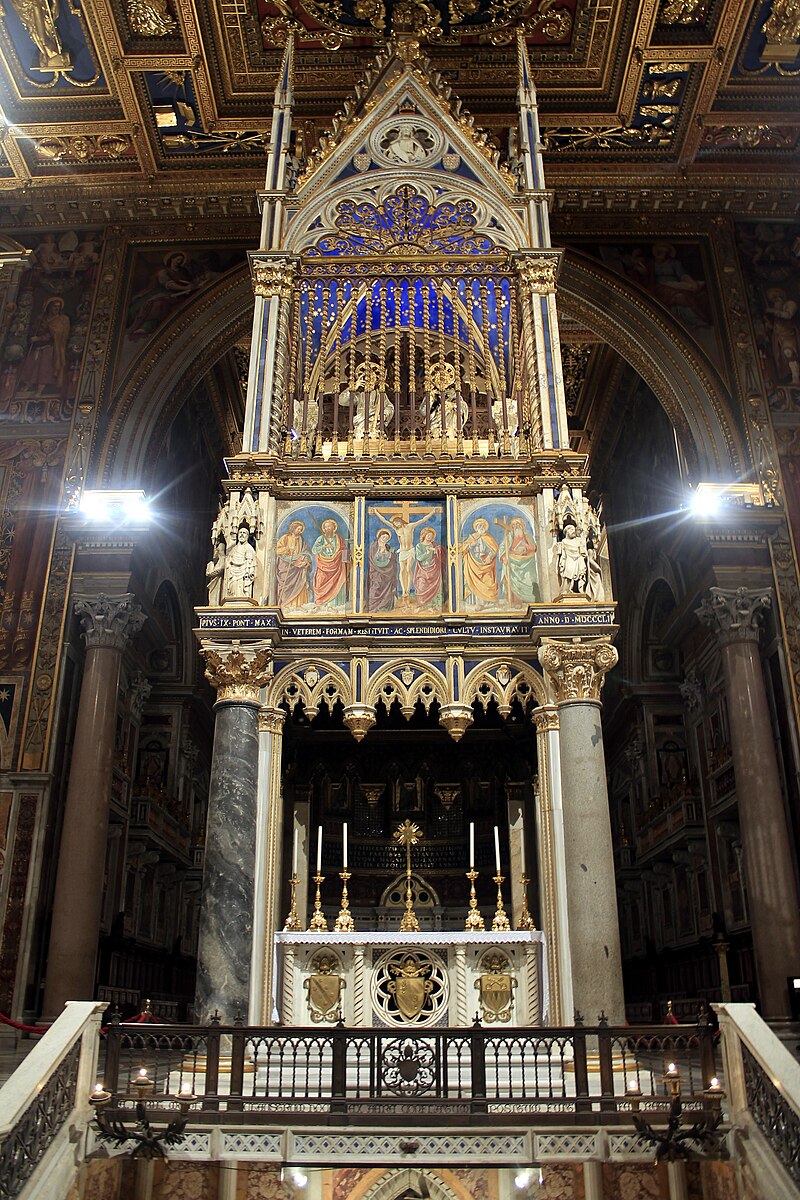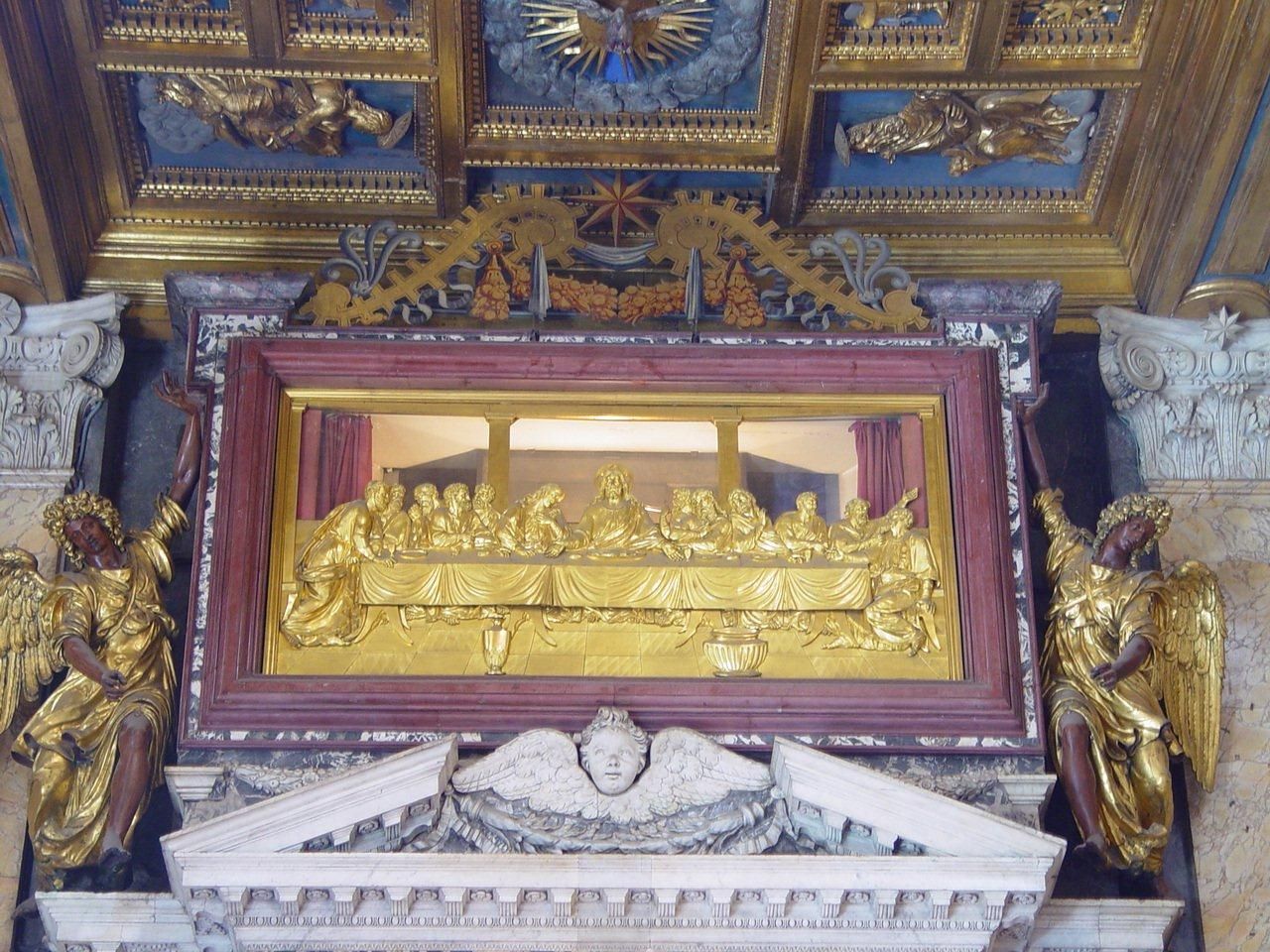Blessed Schuster’s Daily Thoughts on the Rule: Maundy Thursday
Holy Thursday
Station at the Lateran
In Coena Domini
1. Today, the Station is at the Lateran [i.e., the Cathedral of the Pope as Bishop of Rome—Tr.], because the Paschal Supper of the Israelites was consumed in the family and in the domestic sanctuary of one’s own house.

The Gospel reading describes the washing of the feet of the Apostles on the part of the Divine Master. The ancient liturgies attributed a great importance to this last order of Christ: Exemplum enim dedi vobis, ut quemadmodum ego feci vobis, ita et vos faciatis. (John 13:15: ‘I have given you an example, so that as I have done, you also may do.’)
For this reason it was called mandatum [command], and it was carried out almost daily in the Benedictine abbeys with the day’s guests.
Saint Benedict has described for us its rites and its spirit in Chapter 53 of the Rule.
The guest, who in the classical tradition represented a personal envoy of Jove, in the Christian tradition represents Jesus Christ instead.
Omnes supervenientes hospites tamquam Christus suscipiantur….Aquam in manibus abbas hospitibus det: pedes hospitibus omnibus tam abbas, quam cuncta congregatio lavet. (‘Let all the guests who arrive at the Monastery be received as if they were Christ….Let the Abbot pour water on their hands; and for any guests, let the Abbot and the Community wash their feet.’)
To act differently would make us merit Christ’s reproof to Simon the Pharisee: ‘I entered into your house, and you did not even bring Me water to wash My feet.’ (Luke 7)
***
2. In the Rule, there is another washing of the feet which the monks practiced towards one another on Saturday evening, and it is that described in Chapter 35.
‘He who goes out from his week [of service in the kitchen] should do on Saturday the general cleaning; let him wash the towels with which the brethren wash their hands and feet. Both he who enters into the office and he who goes out from it should wash the feet of all.’
The monastic usage derives from the example of the Saviour at the Last Supper; so much so that Saint Benedict makes of it a special privilege for the monks assigned to the service of the tables, as if to grant them a prize for the special toil to which they dedicated themselves.
The tradition was long preserved in the abbeys. In the life of St Leo IX we read that when the Pope, returning from Benevento, found himself one Saturday evening at Monte Cassino, he desired to wash all the monks’ feet in chapter, afterwards submitting in his turn to allow his to be washed by them as a sign of mutual love.
At Monte Cassino the ceremony of the Mandatum on Holy Thursday was invested with a special splendour, because the monks took pride in guarding in their basilica a part of the towel used by the Lord at the Last Supper.

The Mensa Domini [Table of the Lord] on which Christ is thought to have dined is preserved, according to tradition, in the basilica of the Lateran, above the altar of the Most Blessed Sacrament.
***
3. ‘If I do not wash your feet, you will have no part with Me.’
These words of the Saviour to Saint Peter appear mysterious.
In the east, at table, the washing of the feet on the part of the master of house was a sign of hospitality which one could not refuse without bringing an affront to the master.
If Peter refuses, is it perhaps to declare himself a stranger to Christ, neither His disciple, nor His guest? Non habebis partem mecum, the Lord declares to him. He who places himself outside of the Church, outside, that is, of the House of the Redeemer, will have no part with Christ; since, as Saint Cyprian writes, he cannot have God for Father who does not have the Church for mother.
Peter, admonished by the Divine Master, then understands the mystery which is concealed beneath this rite. If Jesus does not wash our sins in His Blood, we cannot form part of His messianic kingdom.
For this reason the Saints sing in Heaven: Redemisti nos, Domine Deus, in Sanguine tuo…et fecisti nos Deo nostro regnum et sacerdotes, et regnabimus super terram… (Apoc 5:9-10: ‘Thou, O Lord, hast bought us back with Thy Blood, constituting us, for the glory of our God, a kingdom and a priesthood; so that we might rule over the earth.’)
It is a beautiful and moving prayer of the Apocalypse, which should be profitably repeated by us too.
